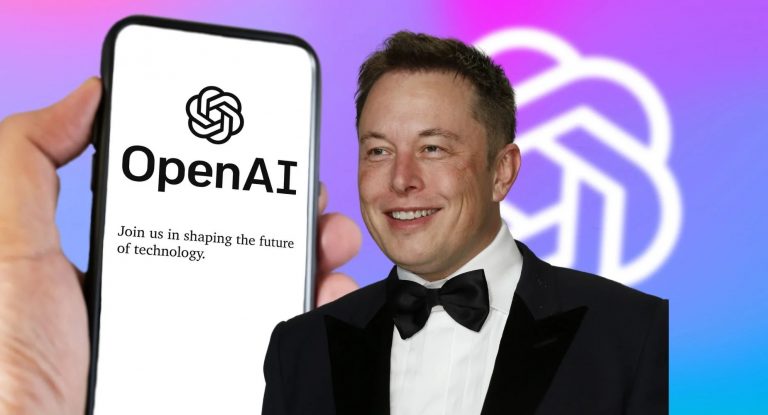
Elon Musk, the billionaire entrepreneur and visionary behind companies like Tesla and SpaceX, has launched a lawsuit against OpenAI, its co-founders Sam Altman and Greg Brockman, and affiliated entities.
Musk’s legal action accuses the renowned AI research organization of straying from its original non-profit mission in favor of profit-driven endeavors, marking a significant escalation in the ongoing debate over the ethical development and deployment of artificial intelligence.
The lawsuit, filed in a San Francisco court, paints a picture of betrayal and contractual breach, alleging that OpenAI has reneged on its founding commitments to Musk and the broader public. Musk, a prominent figure in the AI industry and an early supporter of OpenAI asserts that he was persuaded to contribute to the establishment and funding of the organization in 2015 under the premise that it would operate exclusively as a non-profit entity, dedicated to countering the competitive threat posed by tech giants like Google.
Register for Tekedia Mini-MBA edition 18 (Sep 15 – Dec 6, 2025) today for early bird discounts. Do annual for access to Blucera.com.
Tekedia AI in Business Masterclass opens registrations.
Join Tekedia Capital Syndicate and co-invest in great global startups.
Register for Tekedia AI Lab: From Technical Design to Deployment.
According to legal documents, OpenAI’s founding agreement mandated that its technological advancements be freely accessible to the public, a principle that Musk contends has been disregarded. Instead, he argues, OpenAI has transitioned into a profit-driven enterprise, particularly following its lucrative partnership with Microsoft, the global tech powerhouse that has poured substantial investment into the AI startup.
“In reality, however, OpenAI, Inc. has been transformed into a closed-source de facto subsidiary of the largest technology company in the world: Microsoft,” the lawsuit stated. “Under its new board, it is not just developing but is actually refining an AGI to maximize profits for Microsoft, rather than for the benefit of humanity.”
This shift in focus, Musk argues, constitutes a stark betrayal of the original vision and principles upon which OpenAI was founded. The lawsuit underscores the deep-seated concerns Musk has harbored for the past year regarding OpenAI’s evolving priorities and strategic direction.
“OpenAI, once a beacon of hope for ethical AI development, has strayed from its noble mission,” Musk declared in a statement accompanying the legal filing. “I cannot stand idly by as an organization that I helped nurture and support veers off course, prioritizing profit over the betterment of humanity.”
Musk’s dissatisfaction with OpenAI’s trajectory is palpable, fueled by his significant financial contributions to the organization over the years. According to the lawsuit, Musk donated over $44 million to OpenAI between 2016 and September 2020, making him its largest benefactor during that period.
However, despite his substantial investment and early involvement, Musk distanced himself from OpenAI’s board in 2018, citing fundamental disagreements over its strategic direction.
Sam Altman, one of OpenAI’s co-founders and its current CEO, has previously addressed Musk’s criticisms, defending the organization’s pivot towards commercialization and its close collaboration with Microsoft.
“I like the dude. I think he’s totally wrong about this stuff,” Altman remarked at a conference last year in response to Musk’s concerns. “He can sort of say whatever he wants but I’m like proud of what we’re doing and I think we’re going to make a positive contribution to the world and I try to stay above all that.”
However, Musk’s lawsuit indicates a growing schism between his vision for OpenAI and the direction pursued by its leadership. Central to Musk’s legal challenge is the contention that OpenAI’s transition to a for-profit model, coupled with its partnership with Microsoft, has compromised its ability to fulfill its original mission of advancing AI for the benefit of humanity.
The launch of Grok, a rival to OpenAI’s ChatGPT, by X, the social network owned by Musk, underscores his willingness to challenge OpenAI’s dominance in the AI industry. Grok, which Musk has been promoting – asserting its difference from its woke counterparts, serves as a testament to Musk’s unwavering commitment to ethical AI development and his determination to hold organizations accountable for their actions.
OpenAI’s introduction of ChatGPT in late 2022 triggered an AI arms race, with competitors scrambling to match its human-like conversational capabilities. Microsoft CEO Satya Nadella’s remarks about the superiority of Microsoft’s AI models further underscore the intense competition in the industry.
The legal complaint also draws attention to a recent interview with Nadella, in which he highlighted the close alignment between Microsoft and OpenAI. Nadella stated that if “OpenAI disappeared tomorrow…we have all the IP rights and all the capability. We have the people, we have the compute, we have the data, we have everything. We are below them, above them, around them.”
Nadella’s comments, according to Musk’s lawsuit, serve as compelling evidence of OpenAI’s prioritization of Microsoft’s interests over its original mission.
At the heart of Musk’s lawsuit lies the contention that OpenAI’s latest creation, GPT-4, constitutes Artificial General Intelligence (AGI) – an AI system with capabilities rivaling or surpassing those of humans. Musk alleges that OpenAI and Microsoft have improperly licensed GPT-4, contravening previous agreements that AGI developments would be dedicated to benefiting humanity.
Through the lawsuit, Musk seeks to compel OpenAI to adhere to its original mission as a non-profit organization and prevent it from monetizing technologies developed for the benefit of its executives or partners like Microsoft. He also requests the court to recognize advanced AI systems, including GPT-4, as AGI and enforce restrictions on their use and licensing.
The outcome of the unfolding legal battle could have far-reaching implications for the future of AI research and development, particularly in balancing commercial interests with ethical considerations.



